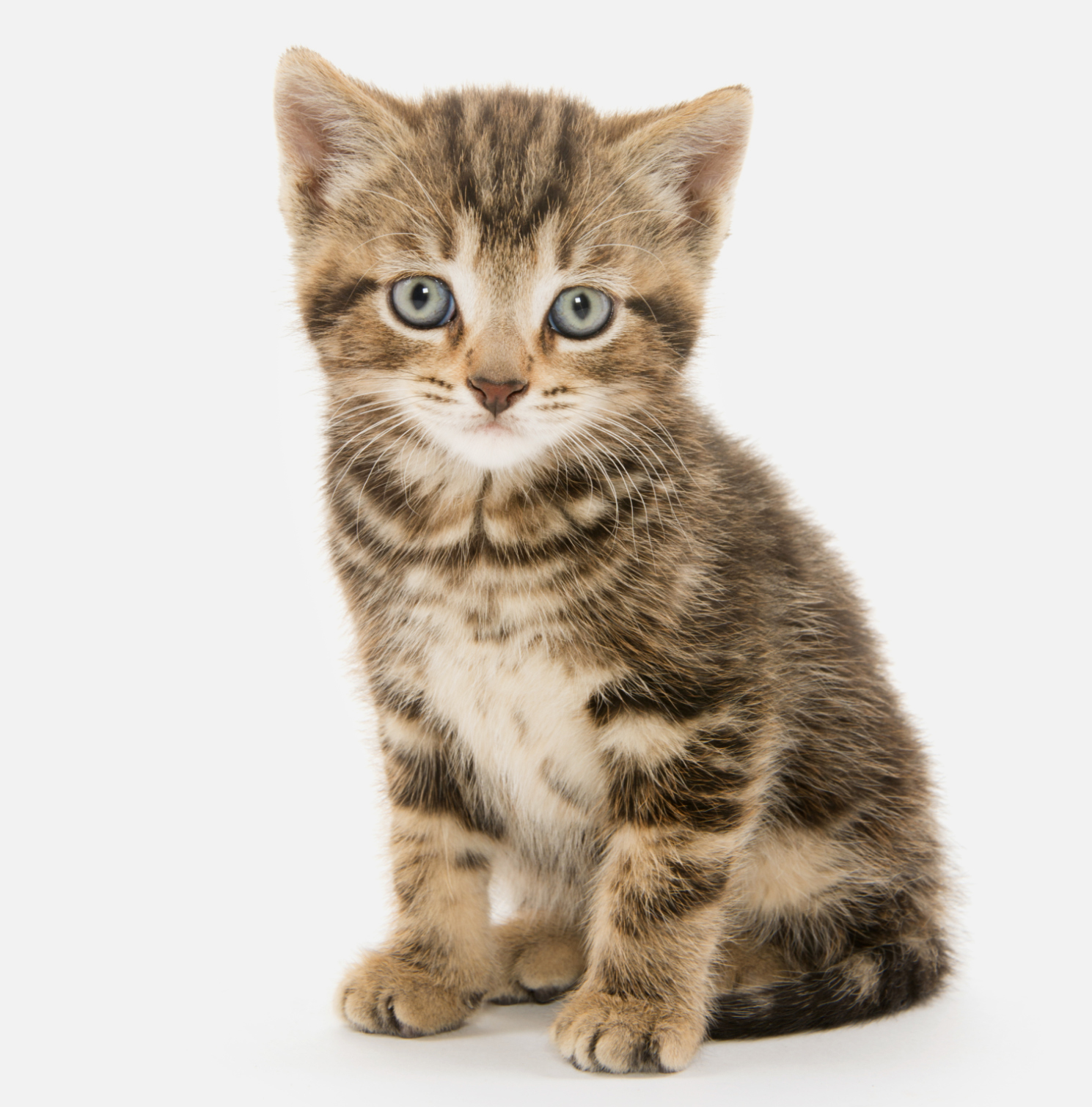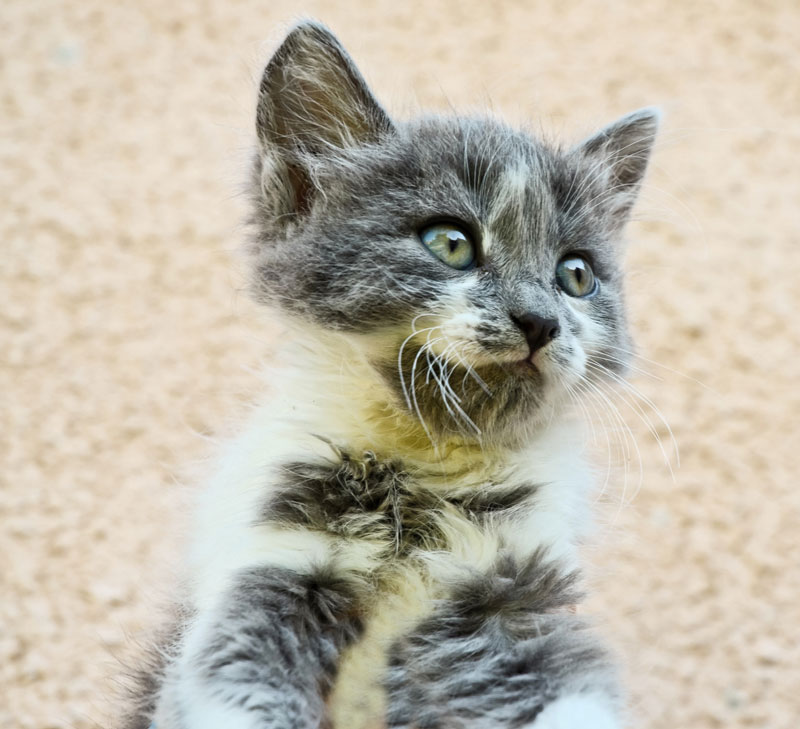
Kowloon Veterinary Hospital (KVH) vets love conducting kitten exams, particularly when the kittens are healthy. Sadly this is not always the case as the majority of kittens we see are from pet shops and frequently they are ill, sometimes seriously.
In our experience, pet shop kittens are at the most risk of congenital disease, malnutrition, illness and parasites. Frequently the kittens are removed from their mothers too early and more often than not, they come from kitten mills. It is for this reason that we strongly recommend owners bring their kitten to us for a Pre-Sale Kitten exam before agreeing to any final payment. A reputable seller should agree to this. The cost of a ‘Pre-Sale Kitten Inspection’ is a fraction of what it costs to treat a sick kitten.
It’s important to note that sometimes, days or weeks after purchase a kitten can still develop a latent disease we are not yet able to detect. This is the risk you take when buying from pet shops or back yard breeders. The kitten mill trade is a lucrative business; the people who run kitten mills care more for profit than the kitten’s welfare or how it will impact you.
Our KVH vets regularly see kittens from pet shops that are seriously ill, despite the owners being told by the pet shop that the kitten was wormed, vaccinated and healthy. More often than not, they have not been. The following will help you know what to look out for if you decide to buy from a pet shop or unregistered (back yard) breeder.
Common trade practices by Hong Kong Pet Shops
- Starving kittens. By stunting the growth of the kittens on display the pet shop keeps them small and cute for as long as they can. They do this to increase the time frame they have to sell the kitten. This affects the kitten’s health, development and ability to fight infection.
- Kittens are often weaned too young from their mothers, missing out on the antibodies they need to fight disease and infection. Pet shops will often sell 4-7 week old kittens, 8-12 weeks is the proper age.
- Kittens weaned too soon miss out on socialisation with their mother and siblings – creating behavioural disorders and bonding issues.
- Pet shop kittens are rarely wormed, de-flead or given their vaccinations. The vaccination chart they show you may be forged.
- The ‘vet’ the pet shop recommends for a pre-purchase check is often employed by the pet store and will not tell you the true condition of the pet.
- Pet shop kittens often have had little contact with humans in the kitten mill, or if they have it is not always positive. This can make kittens, fearful, skittish, destructive and untrusting of humans.
- Pet shops will happily sell you a breed that is in fact not a pure bred, or not even the breed you think you have bought.
- Do not expect a pet shop to sell you a pet suited to your lifestyle – it’s your responsibility to know what pet you are buying. Their primary goal is to sell pets. Whether this pet is a good match to you, your lifestyle, your family and your home is not their concern.
- Cash payment only and no receipt, means no responsibility.

You could be taking home a sick kitten
Because kitten mill operators often fail to apply proper husbandry practices that would remove sick cats from their breeding pools, kittens from kitten mills are prone to congenital and hereditary conditions. These can include:
- Skin disorders
- Epilepsy
- Heart disease
- Kidney disease
- Chlamydia
- Feline Leukaemia
- Genetic defects (long soft palate, laryngeal defects)
- Musculoskeletal disorders
- Endocrine disorders (diabetes, hyperthyroidism)
- Blood disorders
- Deafness
- Eye problems (cataracts, glaucoma, progressive retinal atrophy, etc.)
- Respiratory disorder
On top of that, kittens often arrive in pet stores and their new homes with disease or illness. These can include:
- Giardia
- Bordetella (feline kennel cough)
- Feline Distemper
- Pneumonia
- Mange
- Fleas & Ticks
- Intestinal parasites
- Heartworm
- Chronic diarrhoea
So where should you get your kitten from?
So where do you buy a pet from? We recommend breeders, where you can see the kitten’s mother, and sometimes father. It is important you can see the cleanliness of the kitten’s living area and the mother is healthy and not in a cramped or dirty cage.
Hong Kong has reputable breeders; societies are often the best place to find a good breeder, such as http://www.hkshcc.net The Hong Kong Short Hair Society and http://www.catsocietyhk.org the Hong Kong Cat Society.
The SPCA, HKCR and HK Alleycat Watch, LAP, and countless other agencies have lots of kittens and young cats looking for homes. You can easily visit their websites to see the kittens currently needing homes. Many are mixed breeds, but frequently they have purebreds too.
While a more expensive option initially, buying from an international breeder will give you a properly bred cat. These kittens are often much less prone to illness and congenital (inherited) disease. Top international registered breeders are very careful to whom they sell kittens to, they are passionate about their breed and the quality of their litters. Don’t be surprised to find a breeder is interviewing you, they will only sell to the very best homes.


